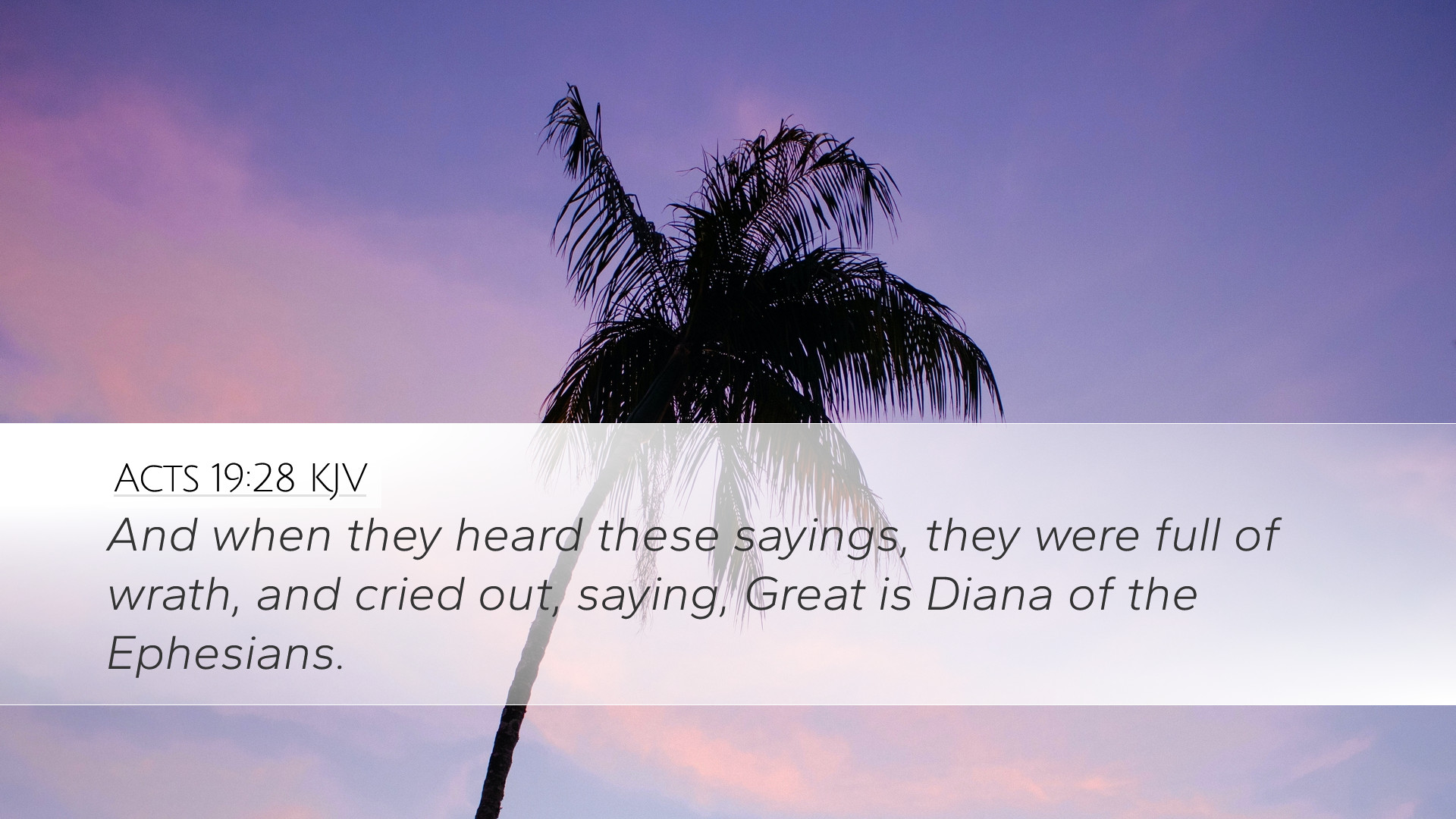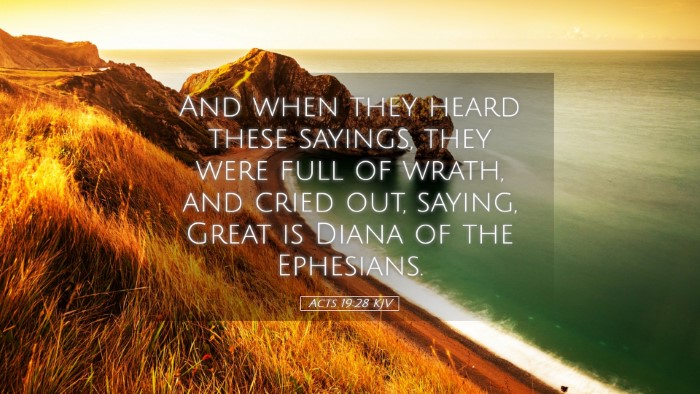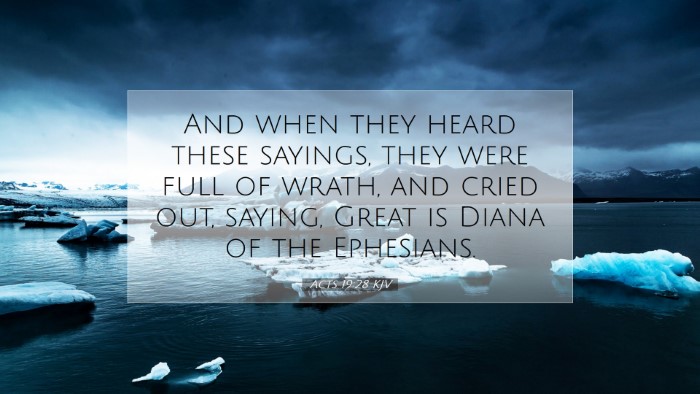Commentary on Acts 19:28
Acts 19:28 states, "And when they heard these sayings, they were full of wrath and cried out, saying, Great is Diana of the Ephesians!" This verse occurs within the larger narrative surrounding the Apostle Paul’s evangelistic efforts in Ephesus, where he had been preaching the gospel and performing miracles in the name of Jesus, leading to significant conversions and disturbances in the city’s economy and religious practices. This commentary synthesizes insights from several public domain sources.
Contextual Overview
The surrounding passages describe a tumultuous period in Ephesus as Paul’s ministry confronted the idolatrous practices centered around the worship of Artemis (Diana). The silversmiths, who prospered from the production of shrines and idols, perceived a direct threat to their livelihood due to the conversion of many to Christianity. This incited a collective outrage among the citizens and artisans of Ephesus.
The Reaction of the People
The reaction portrayed in Acts 19:28 reflects the intense emotional response of those who felt their religious identity was under siege. According to Matthew Henry, "The fury of the people is oft-times ungovernable when their interests, whether real or imagined, are threatened." The outcry of “Great is Diana of the Ephesians!” can be seen as both a defense of their idol and a rallying point to maintain their cultural identity. Henry notes the irony in their response, as it clearly demonstrates the power of the gospel to disrupt societal norms and economic practices.
The Role of Idolatry
Albert Barnes offers a critical examination of idolatry in this context, highlighting how religious fervor is often intertwined with personal and economic investment. The worship of Diana was not merely spiritual; it had deep economic implications for the region. Barnes asserts, "Such was their infatuation that they regarded their idol, Diana, as not only a goddess but as the protector of their commerce and prosperity." This interconnection between faith and financial interests created a volatile environment ripe for conflict as the message of Christianity threatened to dismantle these ties.
The Emotional and Social Dynamics
The emotional and social dynamics at play reveal much about the human condition. Adam Clarke points out that this was not simply an expression of anger but a manifestation of fear and anxiety regarding change. The uproar illustrates the struggle against the upheaval caused by the growth of the Christian faith, which could disrupt their cultural and spiritual way of life. Clarke emphasizes that such reactions are not unique to the citizens of Ephesus; they are reflective of all societies when faced with profound change that challenges established norms.
The Theological Implications
This scene in Ephesus goes beyond the immediate narrative. In its theological implications, it invites deeper reflection on what it means to worship authentically. Matthew Henry suggests that the fervor displayed by the Ephesians can serve as a cautionary tale for contemporary believers: “Let us guard against the false zeal that manifests itself in unthinking fervor, instead of true devotion.” True worship demands an engagement of the heart and mind, and must be rooted in the truth of God’s revelation.
Application for Today’s Believers
- Understanding Cultural Resistance: As seen in the Ephesians, modern believers may face cultural resistance when their faith challenges the prevailing values of society. Pastors and theologians can use this narrative to encourage resilience and endurance in faith amidst hostility.
- Connecting Faith and Practices: The intersection of faith and economic activities invites reflection on how Christians engage with their communities and industries. It poses a critical question: how does our faith challenge the practices around us?
- Authentic Worship: The clamor for Diana reminds us that true worship must transcend cultural and economic identities, focusing instead on the spiritual truths of the gospel. Believers are called to examine the motives behind their worship and ensure they align with God's will.
Conclusion
Acts 19:28 serves as a profound reminder of the tensions between faith and culture, worship and idolatry, as well as truth and tradition. The insights gathered from the commentaries of Henry, Barnes, and Clarke provide a holistic view, urging an exploration of what it means to engage faithfully with a world that may not always embrace the transformative message of the gospel. As believers navigate contemporary challenges, may they do so with wisdom and courage, holding fast to the principles embodied in this critical passage.


